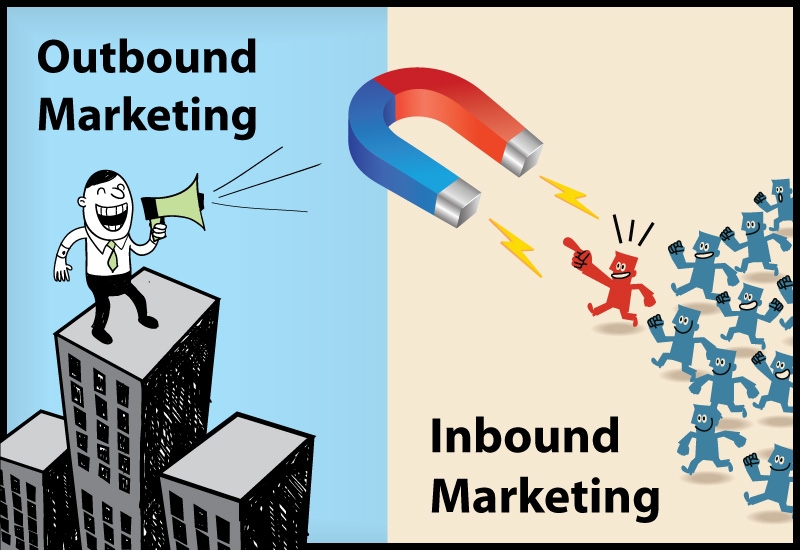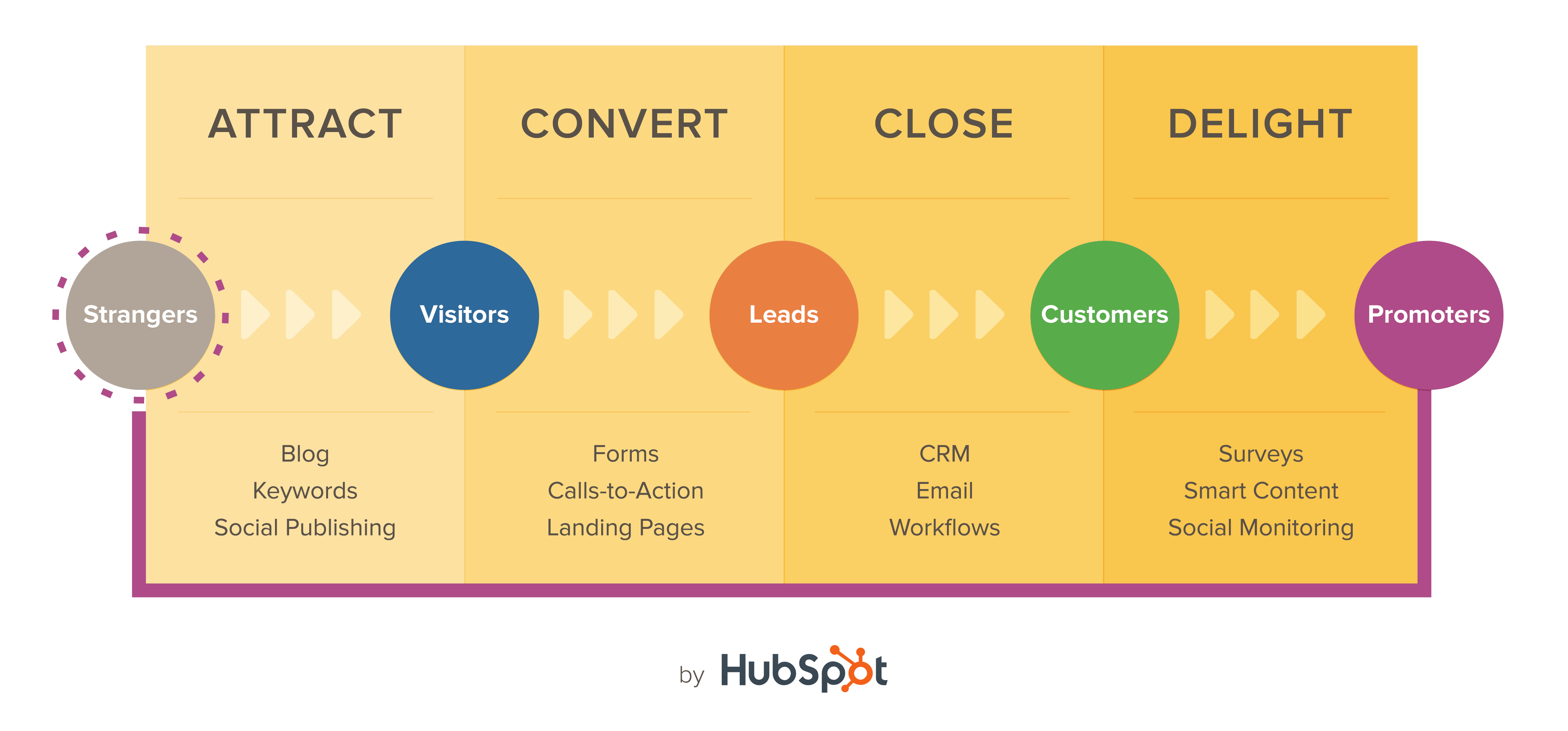 In my last post I mentioned that I currently work for a company called Hubspot, who provide a marketing platform that primarily helps businesses turn their website into a ‘magnet’ and generate more traffic.
In my last post I mentioned that I currently work for a company called Hubspot, who provide a marketing platform that primarily helps businesses turn their website into a ‘magnet’ and generate more traffic.
I speak to start-ups and struggling companies everyday in the UK and Ireland and the same consistent themes come through.
Many companies still believe in the old traditional Outbound Marketing methodology which might have served them well in the 90’s or early ’00s, i.e. attending trade shows, cold calling bought leads, inserting ads in media like newspaper, TV, radio as a way to promote their brand.
The problem with that is it creates a wall of noise which is very general, not tailored to your specific market and can be very disruptive and interruptive especially if you are at the receiving end of this barrage. Hubspot (and a number of other companies since 2006) have woken up to the fact that this model no longer works and created the principle of Inbound Marketing.
The single best way to drive traffic is through Blogging and the creation of compelling content.
I’m still amazed by some companies who rely on a ‘brochure’ type site carrying a misguided hope that by simply having on online presence should guarantee those leads to flow through. That won’t make you stand out from your peers in order to gain the numbers, leads and customers you want.
Blogging isn’t some ‘fluffy’ or ‘soft’ exercise that should be delegated in your list of priorities. When done correctly, it can help yield massive returns on your investment through time and resources. But it needs to be done right.
Companies that blog 2-3 times per week generate about 5x more organic search traffic than those companies that don’t blog at all. The articles don’t need to be ‘War and Peace‘ in length – short and sweet, nice and concise between 250-750 words is a good target.
In some instances when I speak to businesses and they tell me they are already blogging but not getting anywhere near enough visitor numbers, when I drill into the detail I can see it’s for 4 reasons.
- Their content is very Self-Promotional. The emphasis is on them, instead of their future customer – What I call the ‘me-me-me’ syndrome. Talking about awards you’ve won, Christmas parties or Company quiz nights probably isn’t going to make me part with my time or money. Instead you should be stepping into your future customers shoes and understanding what problems or issues, they would need answered and to provide an elegant way to solve it. Authors like J.A. Konrath, Joanna Penn and Catherine Ryan Howard all have fiction stories to sell, but they aren’t banging a drum to get your attention. You’re more likely to find them if you’re searching for ways to self-publish, building confidence in public speaking or seeking advice on how to edit your novels first draft.
- Companies publish blog posts that aren’t Keyword Rich. You need to communicate to Google (and WordPress) what your article is about. Not only that, you need to choose keywords that are not too generic, ultra niche, or in a highly competitive category where the chances of being found are infinitesimal. I’ll go into this in more detail on the next post.
- Their Target Persona is not clear. Who is your ideal customer? Who are you writing for? Does the content reflect and speak to those personas? I gained a nice little following on WordPress from fellow travellers as I began building my blog, but longer term I don’t really want to focus my energy on writing more travel articles. I want to connect with like-minded zany, adventurous, sci-fi and horror aficionados who enjoy reading because ultimately to get down to the rub, I want my future followers to have an interest in the books I sell which are of this theme.
- Free Content. The web is awash with free information. You can get advice from everywhere – some good, some not great. Typically before any purchasing decision is made, or someone uses a service they will ask their friends and family first. “I wonder if I should give Hot Yoga a try?” If your immediate network don’t know much about it, you’ll ask Google next. It is so important to be ranking highly for the right keywords to ensure you sit atop that first page of Google and begin to position yourself as a ‘thought leader’ or industry expert so that that interested prospect is more likely to use your service as opposed to someone else’s. Providing free, educational content is one way to build your brand and reputation in the consumers eyes and it keeps them coming back for more.
In Part 2 I’ll go into more detail about SEO and Keyword Strategy from what I’ve learnt and how to leverage it on your own website to generate maximum returns.

Nice article. It really simplified the concept nicely
Cheers Ben. Works a charm for businesses especially those not using wordpress. Still figuring things out on this platform though 🙂